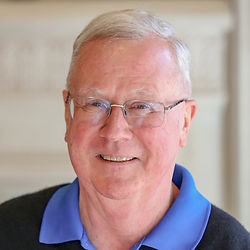
Class of
2025
Business & Professional
Dr. Stanton Cope


Around the world, when experts gather to talk about mosquitoes and the diseases they spread, one name inevitably comes up: Captain Stan Cope. Known in scientific circles as “the Mosquito Man,” Cope has built a career as one of the foremost authorities on medical entomology, advising the U.S. military, private industry, and global organizations on how to understand — and combat — earth’s deadliest animal.
But long before he was “Captain Stan,” he was simply Stanton Cope, known to everyone as “Po,” a Huntington kid with a lively fastball and an endless curiosity. A 1972 graduate of Huntington North High School, Cope earned a reputation as both a standout pitcher and a strong student. His no-hitters — one in youth league ball for Our Sunday Visitor, another at Huntington North, and still another at Swarthmore College — were early signs of the focus and persistence that would define his career.
Cope’s family had deep ties to Huntington. His father, Stanton Elijah Cope, M.D., was a popular local physician and a fellow Swarthmore alumnus, remembered not only for his medical practice but also as an All-America soccer player. Following in those academic footsteps, young Stan left for Swarthmore in Pennsylvania and graduated in 1976 with a biology degree.
Graduate studies soon followed. At the University of Delaware, Cope earned a master’s in entomology, discovering a passion for the medical side of the field. He then pursued a doctorate in public health at UCLA, concentrating on tropical medicine and infectious diseases. While there, he made a breakthrough discovery: identifying a previously unknown mosquito species responsible for a malaria outbreak in San Diego. “Walking back to the lab with my bound dissertation, I never felt the ground under my feet,” he recalled. “If that wasn’t the happiest moment of my life, it was pretty damn close.”
The Navy took notice. Commissioned as a lieutenant, Cope embarked on a 23-year career as a medical entomologist. He rose to the rank of captain — equivalent to an Army colonel — and played a crucial role in protecting American troops stationed around the globe. At the height of his career, he directed the Armed Forces Pest Management Board in Washington, D.C., overseeing pest control for the entire Department of Defense. With an annual $10 million research budget, he pushed development of new traps, attractants, sprays, and other tools to manage arthropods, creatures with “jointed feet” that make up more than 85 percent of the animal kingdom.
His work reshaped how the military, and eventually the private sector, approached pest management. For his leadership, Cope earned 24 ribbons and medals, including the Defense Superior Service Medal. His assignments took him to 23 countries and gave him a front-row view of the global battle against mosquito-borne diseases.
After retiring from the Navy in 2012, Cope transitioned to the private sector. At Terminix International, he served as Director of Entomology and Regulatory Services. Later, as vice president of Technical Services for Atlantic Paste and Glue Company, he published a monthly column devoted to mosquito issues. In 2023, he joined Rose Pest Solutions in Chicago as technical director.
Even as his career advanced, Cope never lost sight of education and outreach. He authored or co-authored more than 80 scientific papers, delivered over 150 presentations, and taught countless classes for schools, community groups, and civic organizations. He developed a three-hour recertification course on mosquitoes and continues to share insights through his blog, “Captain Stan, the Mosquito Man,” as well as contributions to Pest Control Technology and Pest Management Professional.
From 2015 to 2017, Cope served as president of the American Mosquito Control Association during the Zika virus crisis, a pivotal time for global public health. He also helped establish the Kelly Labell Award for mosquito research, honoring a young woman who died after contracting Eastern equine encephalitis. The award continues to support promising studies into vector-borne diseases.
Throughout the pest control industry, Cope became the “go-to” expert on mosquito science. He has consistently argued for smarter, more balanced approaches to control. “Soaking back yards with poison isn’t the best approach,” he explained. “The threat of mosquito-borne illness — Zika, West Nile, Mayaro — is bigger than ever. This minuscule insect with a massive global impact — earth’s deadliest animal — deserves a modicum of respect as one of nature’s great creations.”
Today, Cope lives in Chicago with his wife of 34 years, Amyanne, an infectious disease epidemiologist with the Illinois Department of Health. They have two adult children and share a commitment to public health and service.
Looking back, Cope balances scientific rigor with humility and humor. “I usually spent more time studying how mosquitoes live than how they die,” he once joked. “Just don’t tell anybody.”
From the ballfields of Huntington to the laboratories of UCLA, from the Pentagon to international research forums, Captain Stan “the Mosquito Man” Cope has devoted his career to understanding — and teaching others about — a creature both feared and fascinating. His story is proof that even the smallest of subjects can lead to a life of global impact.


